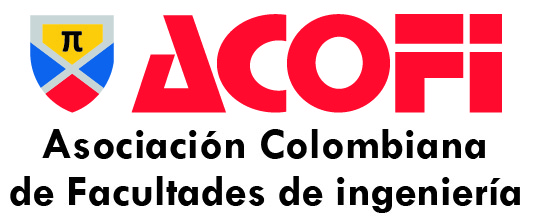Changing the role of the experimental activities in teaching power electronics
DOI:
https://doi.org/10.26507/rei.v8n15.247Keywords:
teaching power electronics, experimental activities, didactic tools, rapid prototypingAbstract
This paper discusses the relevance of diversifying the pedagogical strategies used in the laboratory to achieve a more active role of experimentation in teaching power electronics. The proposed activities are based on the need to apply teaching methodologies in the experimental environment to stimulate students’ learning and optimize the space and time spent with the teacher for said purpose. The initiative is presented within the context of using engineering resources applied in power electronics, such as rapid prototyping and power electronics building blocks (PEBB). The design of some activities in different topics of power electronics are described in detail, showing substantial differences with traditional practices. Finally, discussion highlights the positive effect of the activities proposed herein and motivates its transfer to other areas of engineering education.
Downloads
References
Abramovitz A. (2011). Teaching Behavioral Modeling and Simulation Techniques for Power Electronics Courses. IEEE Transactions on Education, November, 523-529.
Andújar J.M. y Mateo T.J. (2010). Diseño de Laboratorios Virtuales y/o Remotos. Un Caso Práctico. Revista Iberoamericana de Automática e Informática Industrial, Enero, 64-72.
Biggs J. (2006). Calidad en el Aprendizaje Universitario. Narcea S.A. de Ediciones, España, 100-127.
Boroyevich D. (2010). Building Block Integration in Power Electronics. IEEE International Symposium on Industrial Electronics, Bari, Italy, July.
Buso S. and Mattavelli P. (2006). Digital Control in Power Electronics. Morgan & Clypool Publishers, USA, 1-31.
Choi S. and Saeedifard M. (2012). An Educational Laboratory for Digital Control and Rapid Prototyping of Power Electronics Circuits. IEEE Transactions on Education, May, 263-269.
Cirstea. M. (2004). Power Electronic Systems Modelling & Controller Rapid Prototyping – An Efficient Method Using VHDL. IEEE Workshop on Computers in Power Electronics, Illinois, USA, August.
Cunill-Solà J. and Salichs M. (2007). Study and Characterization of Waveforms from Low-Watt (<25W) Compact Fluorescent Lamps with Electronic Ballasts. IEEE Transaction on Power Delivery, October, 2305-2311.
Emadi A., Khaligh A., Nie Z. and Lee Y-J. (2009). Integrated Power Electronic Converters and Digital Control. CRC Press, Taylor & Francis Group, USA, 24-26.
Erickson R.W. y Maksimovic D. (2004). Fundamentals of Power Electronics. Kluwer Academic Publisher, New York, 637-701.
Fernández C., García O., Cobos J.A. and Uceda J. (2002). Self-Learning Laboratory Set-up for Teaching Power Electronics Combining Simulation and Measurements. IEEE Annual Power Electronics Specialist Conference, Cairns, Queenstland, Australia, June.
Fernández C., Zumel P., Sanz M., Lázaro A. y Barrado A. (2008). Herramienta interactiva para la enseñanza de la electrónica de potencia. VIII Congreso de Tecnologías Aplicadas a la Enseñanza de la Electrónica, Zaragoza, España, Julio.
Hingorani N.G. (2003). Power Electronics Building Blocks Concepts. IEEE Power Enginering Society General Meeting, Toronto, Canada, July.
Jacobs J., Detjen D., Karipidis C-U. and De Doncker R.W. (2004). Rapid Prototyping Tools for Power Electronic Systems: Demonstration with Shunt Active Power Filters. IEEE Transactions on Power Electronics, March, 500-507.
Jiménez-Martínez J.M., Soto. F., de Jodán E., Villarejo J.A. and Roca-Dorda J. (2005). A New Approach for Teaching Power Electronics Converter Experiments. IEEE Transaction on Education, August, 513-519.
Lab-Volt (2011). 0.2-kW Power Electronics Training System. Model 8032. Consultado el 27 de septiembre de 2012 en http://www.labvolt.com/downloads/datasheet/dsa8032.pdf
López-Santos O. (2011). Metodología para la investigación en electrónica de potencia basada en una nueva herramienta didáctica. Revista Educación en Ingeniería, Diciembre, 80-89.
López-Santos O. and Rico-Pinto, A.M. (2011). PVECLAB: Power electronics training, teaching and experimentation tool. European Conference on Power Electronics and Applications, Birmingham, UK, September.
Mellitt, B. (2008). Power Electronics: Yesterday and Today. IET Power Electronics Journal. March, 1-3.
Mohan N. and Schott O.A. (2001). Teaching of First Course on Power Electronics: A Building-Block Approach. IEEE Power Engineering Society Winter Meeting, Ohio, USA, January.
Monti. A., Santi. E., Dougal R.A. y Riva M. (2003). Rapid Prototyping of Digital Control of Power Electronics. IEEE Transactions on Power Electronics, May, 915-923.
Nafpaktitis D., Triantis D., Tsiakas P., Stergiopuoulos C. and Ninos K. (2006). Using New Technologies for Teaching Power Electronics and Assessing Students. International Conference on E-Learning in Industrial Electronics, Hammamet, Tunesia, December.
Nogueiras A., Lago A., Eguizabal L., Marcos J. and Martínez-Peñalver C. (2005). Power Electronics Education: Lectures, Simulation and Laboratory Synergetic Approach. The International Conference on Computer as a Tool, Copenhagen, Denmark, September.
Rao. Y.S. and Chandorkan M. (2009). Rapid Prototyping Tool for Electrical Load Emulation using Power Electronic Converters. IEEE Symposium on Industrial Electronics and Applications, Kuala Lumpur, Malaysia, October.
Rashid M.H. (2004) Why, What and How of Teaching Power Electronics. International Conference on Power Electronics Systems and Applications. Hong Kong, China, November.
Robbins W., Mohan N., Henze C. and Undeland T. (2002). A Building-Blocks-Based Power Electronics Instructional Laboratory. IEEE Annual Power Electronics Specialist Conference, Cairns, Queenstland, Australia, June.
Rosado S., Wang F. and Boroyevich D. (2006). Design of PEBB Based Power Electronics Systems. IEEE Power Engineering Society General Meeting. Montreal, Quebec, Canada, June.
Shaffer, R. (2007). Fundamentals of Power Electronics with MATLAB. Thompson, Boston, Massachusetts, 4-61.
Zumel P., Fernández C., Lázaro A., Barrado A., Olías E. y Pleite J. (2006). Herramienta interactiva para la enseñanza de la electrónica de potencia. XII Congreso Universitario de Innovación Educativa en las Enseñanzas Técnicas, Barcelona, España, Julio.
Downloads
Published
How to Cite
Issue
Section
License
Total or partial reproduction of the documents published in the journal is authorized only when the source and author are cited.
| Article metrics | |
|---|---|
| Abstract views | |
| Galley vies | |
| PDF Views | |
| HTML views | |
| Other views | |









